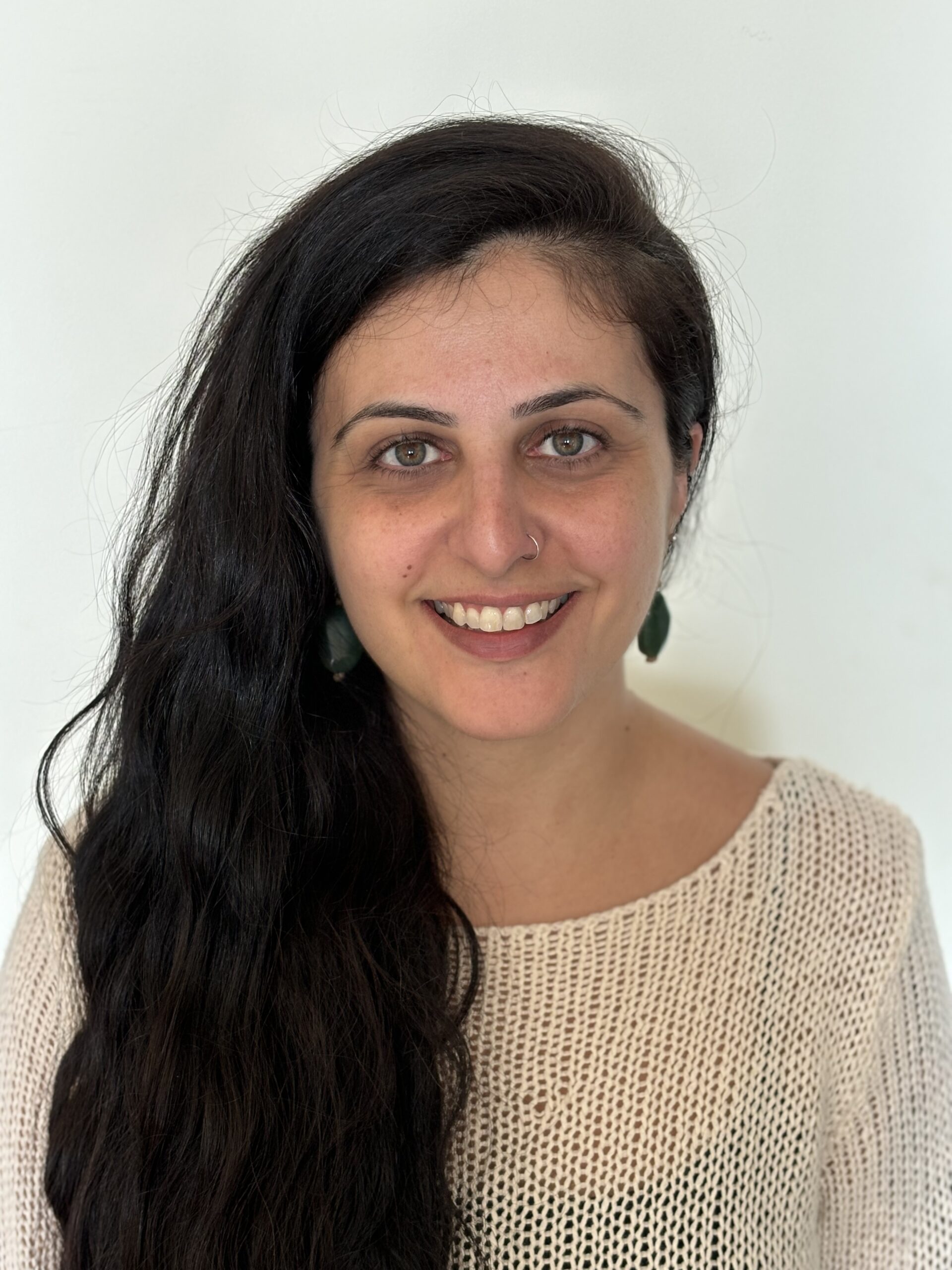ABOUT ME/BIO
I am a US-trained clinical psychologist with over 10 years of experience in treating issues such as addiction, trauma, relationship issues, anxiety, and depression. I work with adults. I use EMDR, Brainspotting, Acceptance and Commitment Therapy (ACT), Internal Family Systems, and somatic-focused work in my practice.
HOW I CAN HELP YOU
Many people enter therapy because they have trouble dealing with difficult emotions such as hopelessness, vulnerability, anxiety, guilt, shame, regret, resentment, and anger. They work hard to not feel these emotions because they are very uncomfortable.
Yet, these emotions, and in fact all emotions, are very important to feel because they tell us vital information about ourselves. They tell us what is important to us. They show us what we are most afraid of in life. One of my main aims in therapy is to guide my clients to become more comfortable with experiencing these difficult emotions so that they can understand themselves better, handle their emotions more thoughtfully, and, in turn, feel more in control of their own behavior. Having more control over your behavior can help you to have better relationships with others and help you feel better about yourself.
Experiencing difficult emotions looks like connecting to your body, where we hold our emotions. I spend time guiding my clients in finding where their emotions live in their bodies, teaching them how to make room for their emotions, to learn from them, and to stop fighting with them. This is a somatic approach to therapy, where we focus on the body to help us understand what we are feeling. Where we stop being afraid to connect to and be in our bodies.
This approach comes from Acceptance and Commitment Therapy (ACT), which is one of the primary models of therapy that I use in my practice. It also focuses on teaching individuals how to take a step back from their thoughts, so they don’t feel so controlled by them, how to live more in the present, and how to act mindfully and thoughtfully rather than feeling like they have no control over their actions.
I also use Trauma-Focused Acceptance and Commitment Therapy (TFACT), which is a compassion-based, exposure-centered approach to address a wide range of traumatic experiences. In TFACT, exposure is the process of facing (versus avoiding) thoughts, feelings, or memories that typically produce anxiety or other very uncomfortable feelings with curiosity, flexibility, and openness. TFACT also addresses issues such as emotional numbness; dissociation; trauma-related anxiety, panic attacks, depression, shame, anger, suicidality, and issues with trust. It helps to guide individuals on how to trust others, develop healthy relationships, and find meaning in life.
I consistently incorporate Internal Family Systems into my work, where we explore the different parts of you (such as the angry part, the anxious part, etc), understand how each part plays a role in your life, and what the purpose of each part is. Very powerful healing can be achieved through this work.
When needed, I incorporate EMDR and Brainspotting (BSP) into therapy. EMDR and BSP are techniques that address trauma and other life experiences that seem to have made an impact on a person's life. These techniques focus on activating certain parts of the brain for trauma healing by either using bilateral stimulation or focusing on certain eye positions. With both, there is less focus on talking and more focus on attending to your body. They are effective for issues such as anxiety (including panic, phobias, performance anxiety), depression, sleep disturbances, addictions, recurring relationship problems, guilt and anger.
Regardless of the approach I use, my priority is to create an environment of safety, understanding, non-judgment, and compassion. Without this, I do not believe that change can happen.
WHY I AM SPECIALIZED IN THIS FIELD
Being a psychotherapist was my adolescent dream. I feel grateful for not only having fulfilled this dream but also for enjoying it just as much as I had hoped I would. I earned my Bachelor’s degree in Psychology at the American University of Beirut in Beirut, Lebanon in 2007. I earned my Master's degree and Doctor of Psychology degree (Psy.D.) at Nova Southeastern University in Fort Lauderdale, Florida in 2012.
I dedicated the first five years of my career to helping individuals struggling with drug and alcohol addiction and their co-occurring disorders (trauma, depression, anxiety) in both residential and outpatient facilities. I also worked in psychiatric hospitals during this time, helping those with severe mental illnesses and addiction struggles. From 2017 to 2023, I worked in jail settings with individuals suffering from severe mental illness such as bipolar disorder and schizophrenia as well as those with addiction, depression, suicidal ideation, anxiety, and adjustment disorders. From 2021 to 2023, I primarily evaluated inmates in jail for their competency to stand trial (CST).
In addition to the above, I have owned a private practice since 2015. In my practice, I have treated individuals with a wide range of issues such as depression, anxiety, OCD, trauma, relationship issues, addictions (sex, food, drugs, alcohol, etc.) , anger management, problems managing emotions, ADHD, personality disorders, bipolar disorder, and psychosis.
In March 2023, I relocated to Dubai, UAE. I continued my work in the U.S. as a remote forensic psychologist until May 2023 and then, after obtaining my DHA license, I transitioned to private practice at ClearMinds, Center for Emotional Health in July 2023. I continue working remotely with California-based individuals in private practice as well.
I was originally trained in psychodynamic, insight-oriented therapy and this continues to influence my treatment of individuals. I place great importance on one's attachment style and family story to help individuals gain insight and understanding into their current problems and relationship patterns. Overall, I believe that when a person gains insight and works through unresolved events and emotions from their past, this can significantly relieve many of their current problems.
I have been trained in a form of Cognitive Behavioral Therapy (CBT) known as Acceptance and Commitment Therapy (ACT). By using ACT, individuals learn to effectively manage distressing thoughts and feelings (e.g., anger, depression, anxiety, etc.), reducing their influence over their behaviors. For example, someone with anxiety can develop skills to learn how to tolerate their discomfort with uncertainty, which can help decrease their need to control their environment just so that they don't feel anxious anymore. ACT emphasizes skills like learning how to not be controlled by your thoughts and feelings, learning how to accept what is not in your control, embracing the present moment, and identifying what is important to you to live a meaningful life.
Additionally, I have been trained to treat trauma-related disorders using Trauma-Focused Acceptance and Commitment Therapy (TFACT). TFACT is a compassion-based, exposure-centered approach to addressing a wide range of traumatic experiences. In TFACT, exposure is the process of turning towards (versus avoiding) thoughts, feelings, or memories that typically produce anxiety or other very uncomfortable feelings with curiosity, flexibility, and openness. TFACT also addresses issues such as emotional numbness; dissociation; trauma-related anxiety, panic attacks, depression, shame, anger, etc.; suicidality, attachment-related trauma, and issues with trust. Finally, it helps to guide individuals on how to trust others, develop healthy relationships, and find meaning in life.
I am also trained in Eye Movement Desensitization and Reprocessing (EMDR), which is a type of therapy that addresses trauma and other impactful life experiences.
I have a passion for continuously learning and strongly believe that it is my duty to my clients to stay updated on best practices for effective therapies. I love to read about therapy and so naturally my reading influences my treatment approach. I am influenced by psychology authors such as Russ Harris, Kelly Wilson, Laurel Parnell, Gabor Maté, and Bessel van der Kolk.
WHAT I SAY TO PEOPLE WHO FEEL NERVOUS OR HAVE CONCERNS ABOUT THERAPY/ASSESSMENT
That's okay to feel nervous! It can be quite nerve-wracking to share intimate details with someone you just met. An essential part of my graduate training was to undergo therapy myself, to know what it's like to be a client. So, I know what it's like to sit on the other couch and share what can sometimes feel like uncomfortable details about yourself. I have experienced the worry of being judged by my therapist, the fear that they won't understand me, or won't provide a safe space for me.
Because of my own experience of being a client, I have made it my priority to ensure that I provide a non-judgmental, safe, compassionate, and understanding space for my own clients. That means, if you come in nervous for the first session and have a hard time opening up, that is absolutely okay. You will never be forced to talk about anything you don’t want to and I will meet you wherever you are at. If you want me to lead the session, I will. If you want to ask me questions about how I do therapy, I will be happy to answer. Or, if you’d rather jump right in and talk about what’s bothering you, we can do that too. The beauty of therapy is that it’s a space where you can start to truly feel comfortable being in your own skin.


